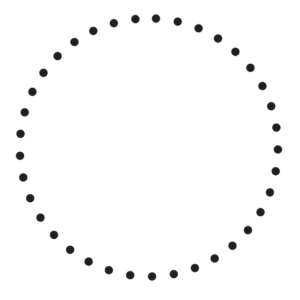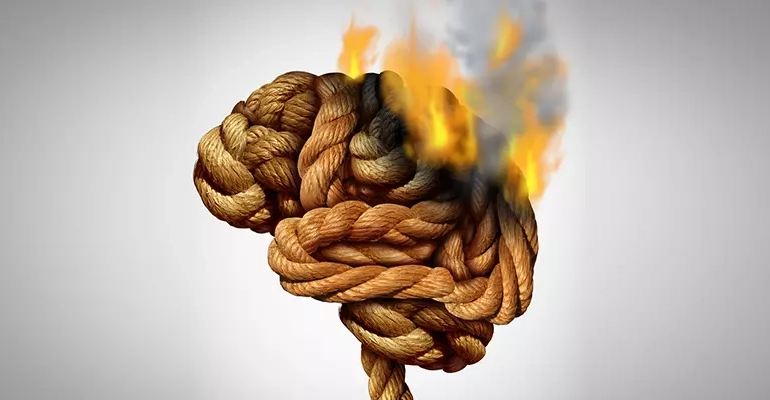Rationality is a white cane of the blind
Explaining things is undoubtedly innate to modern man, and therefore nearly all critical issues of humanity are related to explaining one way or another. Maybe that is why various ethical and philosophical groups, non-profit organisations, churches and scientific organisations have tried to monopolise it. We are already accustomed to the fact that the accuracy of scientific writings is constantly examined, and, therefore, new results are regularly confronted with historical explanations. Even the old answers do not disappear but will multiply and give rise to new doctrines and new types of sciences. The human world has been created by explaining, and the central part is by nature, either religious or scientific.
What then is explaining? Explaining, in general, requires skills to form concepts and use them in thinking and problem-solving, which in turn needs rationality. The Latin word for reason is ratio, which means calculations, understanding, cause and justification. Rationality is the most important of man’s mental instruments, and with it, he measures his fellow species and the rest of nature. Rationality is the crown of his uniqueness and the measure of his sophistication. Therefore, he thinks that everything in nature is guided by common sense and purposes, although it has been alleged that man identifies only a tiny part of the universe through his logic. In philosophy, even the beautiful must meet the criteria for rationality after Aristotle defined the forms of beautiful with the concepts of order, symmetry and “determination” (taxis, symmetria, horismenon). Many people consider his views on the nature of rationality entirely accurate, although they would disagree about its importance. For whom western society is questionably indebted to the rational worldview, Aristotle didn’t ever challenge rationality and its possibilities to solve human problems.
Memory is just a tool for rationality
The human mental growth disorder described on this site reveals that our ability to track time and space and all kinds of relationships is the result of a comparison. That means that cognitive knowing is comparing our memories with the present state of things. Memory is the bank entrusted with the function of “reality” while we stay in the stage of growing up. Cognition is only able to take care of the simple comparison, which practically means eliminating options. All our cognitive knowledge is rationally processed; that is to say, anything which we cannot compare is equal to “meaningless” or “nonsense”, and we cannot “comprehend” them. The most real world then exists within our mind because external experiences have been blocked from us. When we look at the world, we only see things that are on our minds. We do not receive nature, even though our senses receive it. All our external sensory information has been modified. Our consciousness is always an outdated image of reality, and there is no “now moment” for it. (It is also twisted.) It takes about 80 milliseconds to “process” observations. That means it takes about 80 milliseconds to compare them with the image in our memory. What matters most is not the thousandths of a second but the fact that we don’t have the opportunity for direct observations. We always have a mysterious supervisor to control them. We can observe nature, but we really cannot experience it. We do not realize the difference until the growth mechanisms occasionally and without warning give way to mystical (or psychedelic) experiences that open our minds.
Pre-human knowledge vs human knowledge. Consciousness means knowledge. Knowledge means comparing things, i.e., information about variations and concepts created upon comparison. Comparison creates relationships. Relationships are ”facts” with values. Values can be compared, whereas “things as such” cannot. Pre-human “knowledge” was experiential, i.e. “things as such”. The pre-human world seems chaotic and senseless from our juvenile point of view. Young people can also regard it as “groundless”, “nonsensical”, “mindless”, “pointless”, “crazy”, or “irrational”. The tendency for comparison affects the immediate now-moment so that we cannot experience it because of the 80 ms delay the comparison takes.
The function of reason is to eliminate alternatives
For us, knowing something means simply noticing the difference or variation in things without any other experience. Because a child’s observation exists for comparison, external reality is only a medium of this. This mechanism, the most crucial part of which is cognition, ensures that things observed have a prior equivalent in mind, and if they have not, they have no value or meaning for us. The juvenile mind, mainly a laboratory of attitudes and prejudices, is not intended to detect reality or produce more profound knowledge. Intuition, or gut feeling, signifies a desire to act like a real adult and observe things without the impact of trivialising cognition. The consciousness that underpins human dignity in western civilisations does not allow us to experience the world but only shows what children need to survive. Consciousness offers a simplified world. It is a child’s interface to reality.
Donald Hoffman’s Multimodal user interface (MUI) theory is of a similar type. He argues that “perceptual experiences do not match or approximate properties of the objective world, but instead provide a simplified, species-specific user interface to that world”. In my hypothesis, this is initially a child-only feature.
In the psychological sense, cognition is how nature covers the eyes of a child and prevents him from seeing reality as it is. Later, as we get tired of waiting for change and cognition has lost its original purpose, cognition tries to do something it practically cannot do, namely explain the world.
A person who only believes in rational phenomena tends to identify irrationality with non-existence. They can claim short-sightedly that experiences that cannot be reasoned do not exist. Unfortunately, rationality is not judicious at all and has no creativity. It cannot perform anything but the obvious. It is helpless without will or intuition. When making a purely rational choice, the best option equals the least bad option for it. It can only eliminate things.
Meaning equals differences
One can easily see that rationality is incapable of creative work; its only output is eliminating. The reasoning shouldn’t thus produce anything that surprises us because there is nothing in the conclusion which would not have been already in its premises. Rationality is primarily needed in critical situations when we are in danger and should select the action strategy. And strategies are actually for emergencies only. Despite that, the essence of reason is, paradoxically, to destroy, not to uncover or reveal things in everyday life. Such converse is the result of the cooperation of intellect and volition: will make man desperately seek ways to feel needed, and intelligence works for it by eliminating bad choices.
Since the task of reason is only to rule out things and not to look for or face the world, it—or the person behind it—can not reach the world as such. And because a large part of the human conscious activity takes place by “filtering” it through intellect, this very part remains further out of reach “as such” (in a philosophical and psychological sense of the phrase). That reality, which the reason abstracts apart from the world, is, of course, sufficient for itself. Still, if a man at the same time trusts his instincts, he often discovers himself in paradoxical situations. We should note that we can’t eliminate these paradoxes; only the reason can be.
Man is undoubtedly a master of this way of life, but wouldn’t be like without the set of various accessories that support his cognition and intelligence. So first, virtually, we must simplify our world. Each thing perceived must have its own and exact position in mind—a position that makes something meaningful—because the human mind keeps “the world” together, not the world itself.

We see a circle here because our minds simplify our observations. For children, the shapes are more important than the details.
This simplification of perception keeps people viable through, firstly, straightening the original observations, then placing them in the conception system, and finally, making them “understandable”. The task of reason is not a complex one: it identifies and predicts the state and changes of his environment through a couple of means: sorting, abstracting, separating, and combining. As such, reason helps build us, at least, the sense of time and whereabouts, the self and morality. The role of intelligence is to protect humans, but the way it does this is very mechanical and, compared to instincts, sluggish. As reason categorizes the world, it converts reality into a new and manageable entity apart from itself, a substitute world. It simplifies the world at the expense of experientiality, i.e., it makes our experiences poorer. The very purpose of this is to enable us to survive even in challenging circumstances, and therefore reason supplies our mind with things that it only can process. Our rational mind accomplishes this by creating a kind of “grids” in the world, grids that help it manage perceptions. “Causes” and “consequences”, which are just such “grids”, allow reason to give simple “values” or meanings to reality while it “filters” what it sees or makes the world “graspable”. To us, valuing and simplifying appear as “understanding”.

Rationality is a means to secure children’s growth
The child does not need theoretical knowledge and cannot use it. The child does not store information; they use everything. He learns to act by conditioning, by example, by imitating, and by following. All “knowledge” is self-evident to him, meaning he believes everything because he only learns by accepting. The child takes everything for granted. Volition is an autopilot that guides learning. A prerequisite for learning is the existence of parents (they eliminate choice and responsibility). The parents are the ones he follows without question. Knowledge is possible naturally and quickly only by accepting and trusting your family. Therefore, the child must have prerequisite authority. Parents are a mental mechanism that acts as the authority in a child’s mind.




